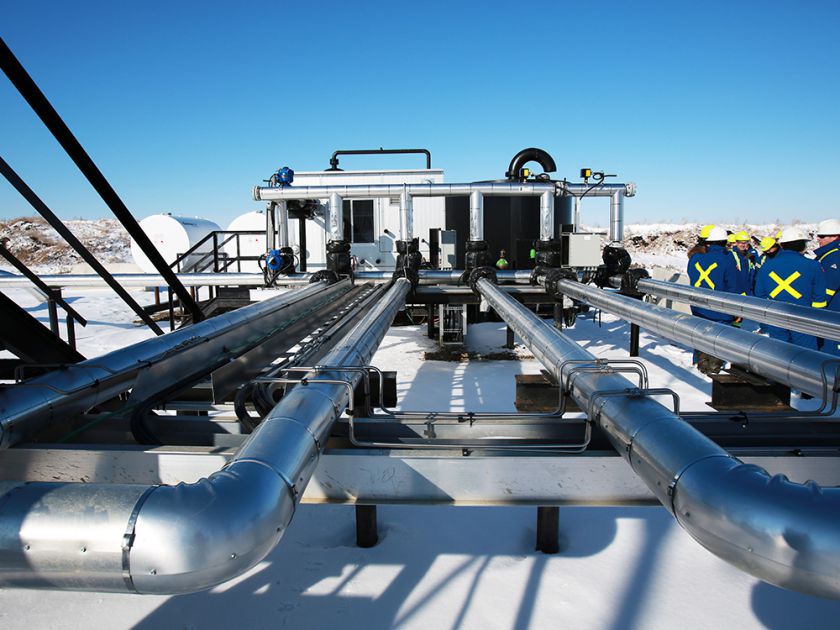In a trade war, Canada’s energy not on the table
Council of Canadians | 14 June 2018
In a trade war, Canada’s energy not on the table
As Trump launches a trade war, Canada is hamstrung by a little-known NAFTA clause that packs a huge climate punch. It’s the energy proportionality clause that gives the U.S. first access to most of Canada’s oil and natural gas.
In a new report to be released today in Ottawa by the Council of Canadians, Escaping Mandatory Energy Exports, University of Alberta professor Gordon Laxer explains that energy proportionality obligates Canada to make available for export to the United States, the same proportion of its energy as it has in the past three years. Currently that is 74% of the oil and 52% of the natural gas in Canada.
Canada’s oil and gas production is the country’s largest and fastest growing source of emissions. The main culprits are tar sands oil, and fracked gas and oil. Most of it is produced for export to the U.S.
“Trump sees Canadian oil as American oil,” says Dr. Laxer. “When he approved the Keystone XL oil pipeline to bring mainly Alberta tar sands oil to U.S. Gulf coast refineries, Trump said it would reduce Americans’ dependence on foreign oil. Because of NAFTA’s proportionality rule, Trump happens to be right.”
The proportionality rule greatly reduces Canada’s ability to meet its Paris climate commitments and hinders Canada from supplying domestic oil to eastern Canadians even if there were to be an international oil shortage caused by a major Middle East war.
Dr. Laxer says that Canada has to end energy proportionality to have the policy flexibility it needs to get this country to a low carbon future. He calculates that because of the energy proportionality rule Canada is locked into producing 1,488 megatonnes of carbon emissions between now and 2050.
This is twice Canada’s current annual emissions and 12 times greater than the annual emissions target for 2050 set by the G8 in 2009.
“NAFTA was written in the early 1990s with major oil industry input before widespread awareness that humans caused climate change disruption. We must not let the dead hand of long ago climate ignorance prevent us from effective action in the 2020s and 2030s.”
Maude Barlow, honorary chairperson of the Council of Canadians says that in the first debates on NAFTA, Canada knew it was giving up its energy sovereignty.
“Proportionality was written to prevent the federal government from giving Canadians first access to their own oil and natural gas. It is a zombie clause,” says Barlow. “It’s time to bring NAFTA into the 21st century.”
Dr. Gordon Laxer is a Political Economist and founding Director of the Parkland Institute at the University of Alberta. Dr. Laxer has published recent op-eds in the Toronto Star, Le Devoir, and the Vancouver Sun on this little-known clause in NAFTA. He is a former board member of the Council of Canadians and author of the award-winning book After the Sands about the transition to a clean energy future.
Laxer will launch his new report, Escaping Mandatory Energy Exports, in Ottawa today, Thursday, June 14. He will be available for interviews on June 14 and 15.
For more information or to arrange interviews:
Dylan Penner, Media Officer, Council of Canadians, 613-795-8685, dpenner@canadians.org.






